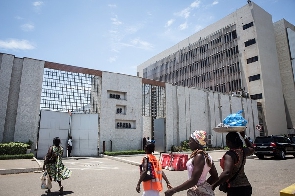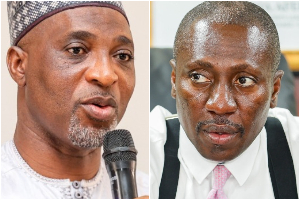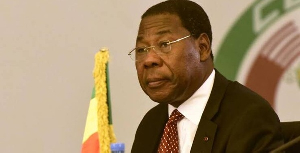The opposition National Democratic Congress (NDC) has described the approach of the ruling New Patriotic Party (NPP) in the wake of the financial sector clean up as 'a wrong one'.
This was contained in the party’s just launched 2020 manifesto ahead of the December 2020 polls.
According to the NDC, a recapitalisation and liquidity roadmap for the banking sector was established in 2015 for banks and Specialized Deposit-Taking Institutions to provide credible restoration plans with clear deadlines.
“A new minimum capital requirement of GH¢230 million for banks was to be announced in early 2017 to be met by end-2019. This was much lower than the GH¢400 million subsequently adopted by the NPP Government without consultations with stakeholders,” the NDC manifesto read.
“Work was started to update the regulatory framework for banks with the passage, in the third quarter of 2016, of the Bank of Ghana Amendment Act 2016 (Act 918), the Banks and Specialized Deposit-Taking Institutions (BSDI) Act 2016 (Act 930) and the Deposit Insurance Act 2016 (Act 931) and these provided a comprehensive framework for dealing with distressed banks.
The NPP Government, however, adopted a wrong approach in their contrived financial sector clean-up,” the manifesto said, as read by the NDC’s flagbearer John Dramani Mahama, noted.
Meanwhile, the Governor of the Central Bank had earlier said most of the collapsed banks and financial institutions that became insolvent due to the financial sector clean-up exercise by the Bank of Ghana in 2017, were run by persons with “questionable backgrounds”.
As part of its efforts to restore confidence in the banking and specialized deposit-taking sectors, the Bank of Ghana (BoG) embarked on a clean-up exercise in August 2017 to resolve insolvent financial institutions whose continued existence posed risks to the interest of depositors.
The clean-up saw the revocation of licenses of 9 universal banks, 347 micro-finance companies, 39 micro-credit companies or money lenders, 15 savings and loans companies, 8 finance house companies, and two non-bank financial institutions.
The move by the central bank was a comprehensive assessment of the savings and loans and finance house sub-sectors carried out by the BoG in the last few years after it identified serious breaches.
Business News of Tuesday, 8 September 2020
Source: www.ghanaweb.com













